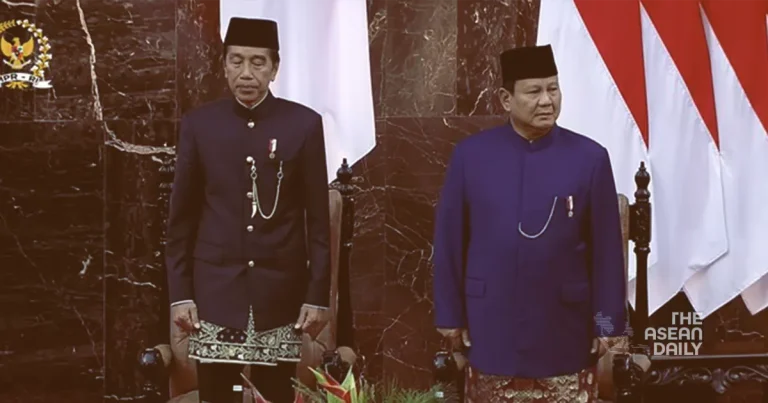20-10-2024 (JAKARTA) Indonesia prepares to witness a pivotal moment in its democratic history. The nation’s capital is abuzz with anticipation as former general Prabowo Subianto readies to assume the mantle of leadership from outgoing President Joko “Jokowi” Widodo, marking the end of a decade-long tenure that has seen Southeast Asia’s largest economy navigate significant challenges and transformations.
The formal inauguration ceremony, scheduled for 10 am local time at the parliament complex in South Jakarta, will see Prabowo Subianto sworn in as Indonesia’s new president, alongside his vice-president, former mayor Gibran Rakabuming Raka. The event, steeped in tradition and symbolism, will be presided over by the newly appointed chief of the country’s Supreme Court, Mr Sunarto, who is expected to raise a copy of the Quran over Prabowo’s head as he takes his oath of office.
This transition of power has captured the attention of both domestic and international observers, who are keenly watching for signs of how the 73-year-old Prabowo will steer Indonesia’s course in an increasingly complex global landscape. Of particular interest is the composition of his cabinet, which has been the subject of intense speculation in recent weeks.
The inauguration ceremony is set to be a grand affair, with Parliament Speaker Ahmad Muzani confirming the attendance of numerous world leaders and dignitaries, including representatives from most Association of Southeast Asian Nations (ASEAN) countries. Also present will be Indonesia’s living former presidents, Megawati Soekarnoputri and Susilo Bambang Yudhoyono, as well as former vice-presidents and Prabowo’s electoral rivals, Anies Baswedan and Ganjar Pranowo.
Following the morning’s formalities, attention will shift to the presidential palace, where Prabowo is expected to unveil his cabinet. This announcement is eagerly anticipated, as it will provide crucial insights into the new administration’s priorities and approach to governance.
One of the most intriguing aspects of Prabowo’s ascension to power is the broad coalition he has assembled. With the support of 12 political parties already secured, and efforts underway to woo Megawati’s Indonesian Democratic Party of Struggle (PDI-P), there are concerns that Indonesia could find itself without a meaningful opposition for the first time since the fall of Suharto in 1998.
Prabowo’s victory in February’s election was built on a platform of continuity, capitalising on Jokowi’s high approval ratings. However, analysts suggest that despite this rhetoric, the new president may chart a different course in key policy areas, including the economy, defence, and foreign relations.




